Katrin Lange in an exclusive interview: “It was an infamous smear campaign against me”

Now Katrin Lange speaks: Brandenburg's former Minister of the Interior about the dismissal of her head of the Office for the Protection of the Constitution, her resignation and a battle for direction within the SPD that has not yet been resolved.
Katrin Lange suggested her Pritzwalk constituency office as the meeting point. It's located in the middle of the market square, reminiscent of other East German towns: pretty facades, empty sidewalks. A man with a fighting dog shouts at her: "The SPD is a junk party!" A woman sitting among men enjoying an afternoon beer asks if she'll become mayor now. No, says Lange. "That's a shame," the woman replies.
It's the first interview the Brandenburg Social Democrat has given since the dismissal of her head of the Federal Office for the Protection of the Constitution and her resignation. Four weeks have passed since then. She appears calm and composed.
Ms. Lange, did you know Jörg Müller , the head of the Brandenburg Office for the Protection of the Constitution, when you became minister?
Yes. When I became State Secretary in the Ministry of the Interior, he was already working there. Later, he became the office manager of the then minister.
Did he introduce himself to you or how does it work when there is a new minister?
There was a round of introductions, with all department heads present. Later, my State Secretary and I visited all departments to discuss the important issues. Naturally, the AfD and the new Federal Office for the Protection of the Constitution report played a role.
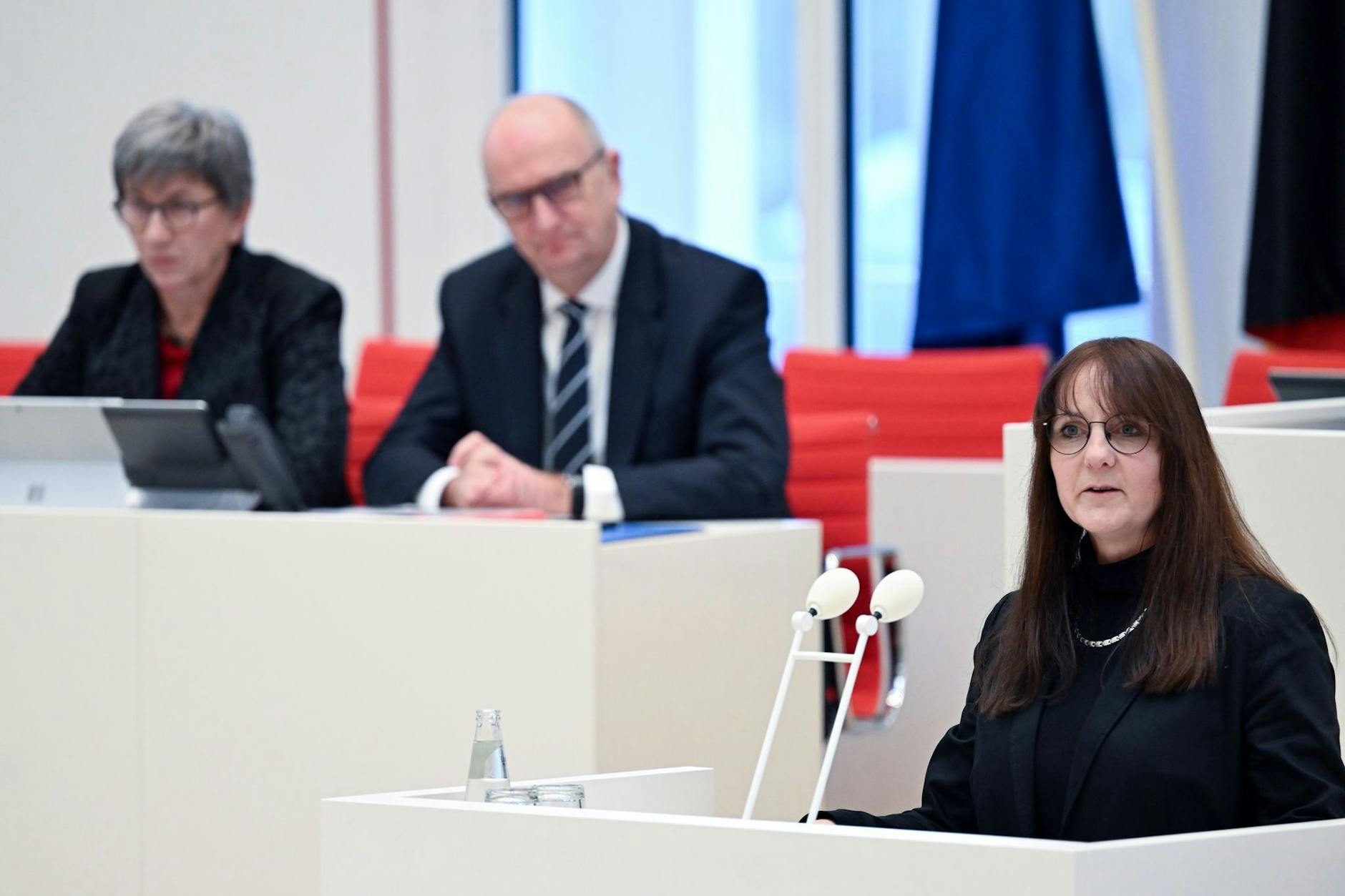
Did he also tell you that a report is being prepared to upgrade the AfD to a confirmed right-wing extremist endeavor?
That was common knowledge. So was I. But this isn't about working on a note, but about the decision to upgrade itself.
Katrin Lange: “Cryptic email in which a crucial point was missing”Were you aware that this could lead to a conflict with him?
I told Mr. Müller that Brandenburg should wait for the federal government's decision. I assumed that the federal government would soon decide on a possible upgrade. And that was indeed the case, even though we were all surprised by the precise timing—so shortly before the new federal government took office.
Nancy Faeser announced the upgrade on May 2. How did you react?
We received press inquiries that day. I then asked Mr. Müller to investigate the immediate consequences for Brandenburg. The response was, in retrospect, a highly cryptic email, missing the crucial point: namely, that Brandenburg had already made the same upgrade as the federal government on April 14.
What exactly did the email say?
The first part states that the federal classification has no direct impact on a possible classification of the AfD's Brandenburg state chapter by the Federal Office for the Protection of the Constitution, as this would have to be done separately in each case. In a federal system, each state makes its own decisions. Aha, nothing new for Brandenburg, then, I thought. Especially since a "possible classification" was explicitly mentioned.
And then?
Then, practically the opposite of what was said before follows. Müller suggested using the alleged momentum and, on the occasion of the federal government's decision, almost casually declaring that the AfD in Brandenburg had now been upgraded from a suspected case to a proven extremist endeavor. The word "now," however, obscured the fact that he himself had made the decision long ago, namely on April 14.
How did you react to the email?
It arrived shortly after 1 p.m. I was here in Prignitz. It was the bridge day after May 1st, a Friday. We then had a conference call to coordinate our press release. Mr. Müller still didn't mention that he himself had upgraded the AfD's party status on April 14th. Otherwise, our press release of May 2nd would have had to look completely different. For me, however, his strange email was the reason for me to request the current situation in Brandenburg – which should have reached me long ago.
When did you get it?
After the weekend, on May 5, the classification note and a cover letter were submitted to the minister's office. This explicitly mentioned for the first time the classification had already been made on April 14—three weeks after the process.
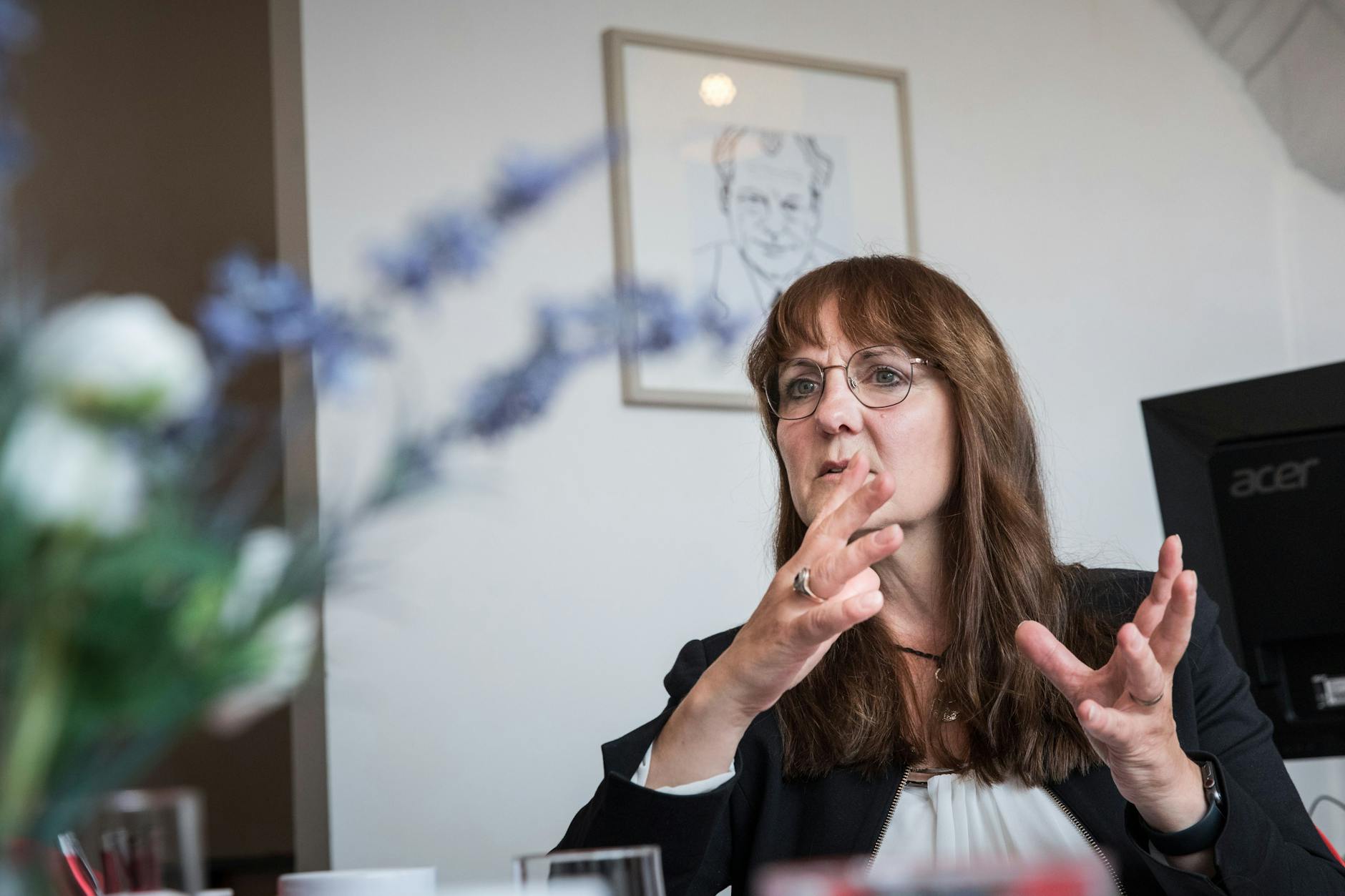
Jörg Müller denies this. He says he informed you that he had signed the upgrade.
I never understood it that way. He wanted to do it alone, but he knew I didn't want that and assumed I would have to make the decision myself in the end anyway. It never occurred to me that I could be the one to blame.
But wasn't he allowed to make the decision alone? Her predecessor, CDU Interior Minister Michael Stübgen, had issued a corresponding directive.
No, he wasn't allowed to. Namely, not when it was clear that doing so would go against the leadership's opinion. No official directive authorizes action bypassing one's own minister. In no ministry in the world. Mr. Müller was a political official. And the Constitutional Protection Act clearly states: "The agency responsible for the protection of the Constitution is the Ministry of the Interior." Not Department 5 itself. Mr. Müller knew my opinion that we should wait for the federal decision. I told him that myself, for example, on April 9, when my State Secretary was there, and again on April 14. He should have waited.
But in these discussions it was clear to you that he wanted to upgrade the AfD?
Yes, it was clear that he wanted to. But I didn't realize that he would make the upgrade on his own initiative, citing an official directive that I wasn't familiar with at the time.
Did you want to prevent the upgrade?
I didn't want to prevent anything. I wanted to wait for the federal government's decision and know the current status. A decision by the Potsdam Administrative Court regarding the classification of the AfD Brandenburg as a suspected case, which had already been made in 2020, was also pending.
How is it possible that you were not aware of the service instructions that Müller is referring to?
From my time as State Secretary, I was familiar with another official directive that reserves such decisions—especially in politically relevant cases—to the respective minister. And this is undoubtedly the case with the classification of a 30 percent party. I should have been informed clearly and directly about the new regulation. But as I said: No official directive in the world allows for action bypassing one's own departmental leadership.
Do you feel tricked?
I feel betrayed and deceived.
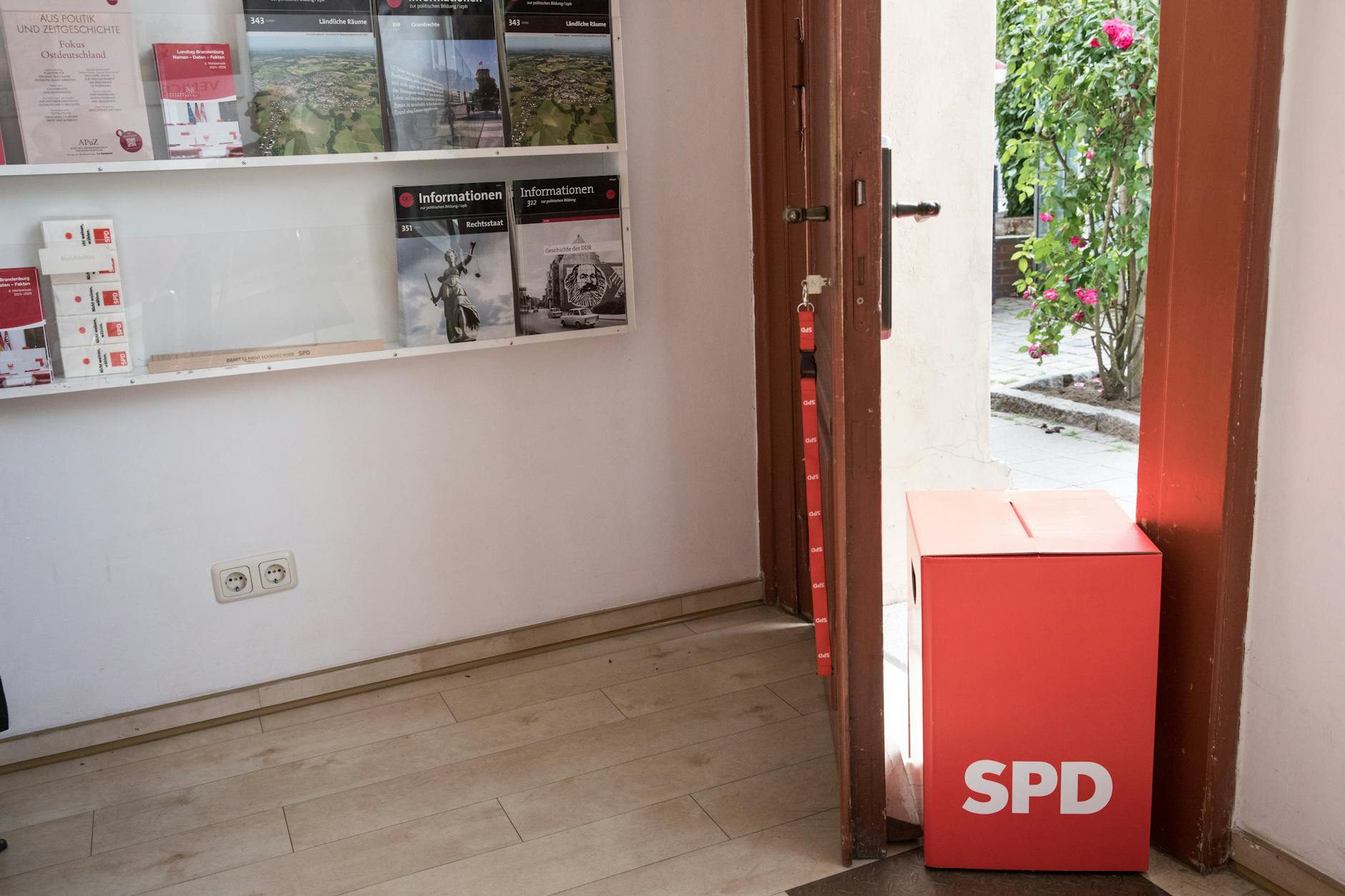
Do you think Jörg Müller had political motives for his actions?
I don't know what motivated him. But the fact that in the weeks following April 14, he constantly beat around the bush instead of speaking plainly leads me to suspect that at some point it dawned on him that he had done something he shouldn't have done without my approval. Hence the gibberish. Of course, as head of the Federal Office for the Protection of the Constitution, he also pursued a certain policy. But that's perfectly legitimate.
Which course do you mean?
That all the possibilities of the Federal Office for the Protection of the Constitution should be exhausted in the fight against the AfD, including expanding surveillance and further upgrading its status. He has advocated this in discussions, and it has also been noted. Ultimately, of course, this serves as a preparation for a party ban.
Do you have a different opinion?
I'm skeptical. I'm in favor of responding primarily to the political challenge posed by the AfD through politics. The role of politics is far more important than that of the Federal Office for the Protection of the Constitution. Take Thuringia: Björn Höcke, the most radical AfD state chapter, has been classified as proven right-wing extremist for four years. And the result? In the last state election, the AfD was by far the strongest party there, while my party barely managed six percent. The course taken there to counter the AfD is clearly not a successful model or a role model for others. I don't understand why this isn't recognized.
Katrin Lange: “I slept on it for another night”When did you decide to dismiss Müller?
On May 5, the Monday the documents arrived and I discovered that the classification had already been made, we had another discussion with a larger group. It was about a press conference at which I was to present the Federal Office for the Protection of the Constitution's report. It was planned for May 12. The Federal Office for the Protection of the Constitution had prepared preparatory documents for the event, including a speaking note. It referred to "today's decision." That would have been untrue. The presentation slide was titled: "Suspected AfD Brandenburg" – at a time when the AfD in Brandenburg had long since ceased to be a suspected case. These documents also made no mention of April 14. I slept on it overnight and came to the conclusion that the necessary trust was no longer present.
Did you personally fire him?
Yes. My State Secretary was there. Mr. Müller said something like, "Well, then I can save myself the apology," and closed his laptop. He had obviously prepared something. We then wrapped it up quite well.
Shouldn't you have asked Jörg Müller much more clearly: What's going on now? Is there a signed upgrade?
I should have structured the exchange between the department's management and the Office for the Protection of the Constitution differently since December. Clearer and more binding. That's my fault. I also consider it possible that we sometimes talked past each other. I'm not suggesting any malicious intent. But that doesn't change the fact that a political official cannot ignore the minister's instructions. Under no circumstances. In retrospect, the obfuscating and strangely vague wording since April 14 is, of course, striking – it suggests that something unusual had indeed happened here beforehand.
Yet you resigned ten days after Müller's dismissal. Why?
This was due to a lack of support within my own party and parliamentary group. A vicious smear campaign was staged against me. And always behind my back. When the Greens or the Left criticize me, I have to put up with it. The CDU went along with it, which isn't surprising, because here in Brandenburg we have the dumbest and worst CDU in Germany. But it was parts of my own party that accused me of pandering to "right-wing extremist discourse" or denied me "social democratic DNA." These were the most despicable defamations that I was no longer willing to tolerate. My policies corresponded exactly to our jointly agreed coalition agreement; everything else is fake news.
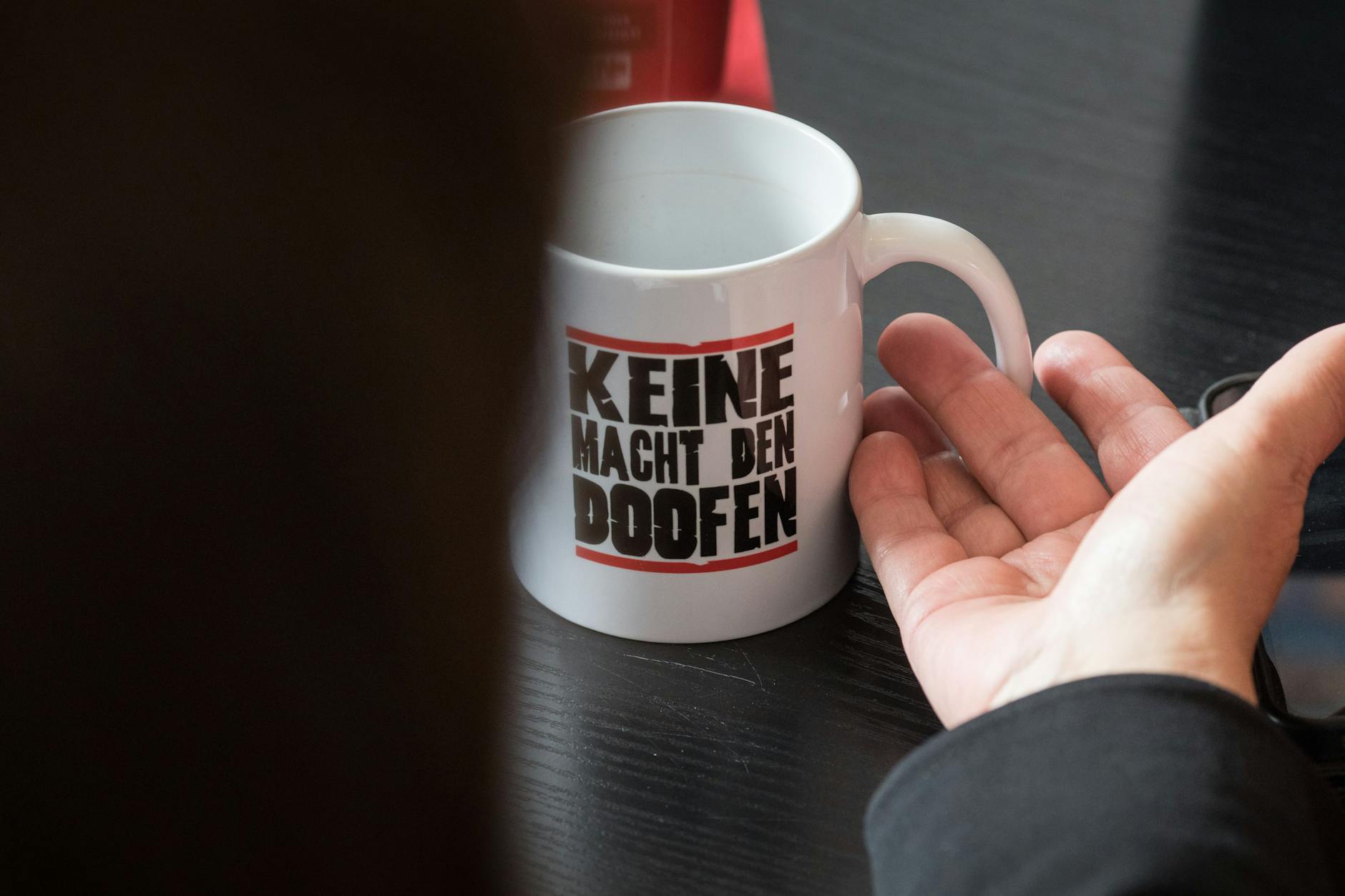
This accusation was also reported in newspapers: you were working together with the AfD.
That, too, was part of the smear campaign against me. Anyone who addresses problems that simply exist isn't making common cause with anyone. Except with reality.
Did media pressure contribute to your resignation?
Yes, of course. Things were constantly being leaked to the press or spread around, leading to a very one-sided picture of what was going on. It didn't stop, and I couldn't defend myself against it. Many colleagues were quite shocked and asked: Why are they attacking me like that?
Sounds almost like a coup.
That's not my choice of words. It was a collaboration between politics, the media, and insider leaks aimed at getting me out. Things escalated, even within parts of the SPD. At that point, I said: This can't go on.
Dietmar Woidke's successor? "It's over for me"Dietmar Woidke said in his statement that he didn't want you to resign, but that he could understand it from a human perspective. He seemed quite moved as he stood next to you at the press conference.
We've worked together for twelve years and successfully contested three state elections. We know and like each other. He's a gentleman. And he's the strongest asset the SPD Brandenburg can boast.
He has groomed you as his successor; you should become the future Prime Minister, it is said.
I've never conducted succession debates. I won't start now, since that's already settled for me. I hope Dietmar Woidke remains our Minister President for a long time. The success in last year's state elections was largely his success. Some in my party don't realize what they owe him. We only win state elections these days when it comes to Brandenburg – things are quite different in European and federal elections. State elections: almost 31 percent, federal elections: less than 15 percent. That's food for thought.
When did you tell him you wanted to resign?
I think I told him very late Thursday evening that I wanted to resign because I didn't want to end up being chased out of the court by my own people. It's not true that Dietmar Woidke abandoned me, as some of the press reported. That was my own decision.
How do you explain that people within your own party have turned against you? Have there been conflicts going on for some time?
Parts of the party don't like my line. Not on security, not on migration, not on the energy transition. They want a different course, ultimately a different party, one that moves significantly further to the left. Preferably a left-green party. I, on the other hand, fear that this new course will have devastating consequences for the future of the SPD in Brandenburg outside of Potsdam and the suburbs. I also refuse to write off the 30 percent of AfD voters, many of whom we know once voted for us. I can't assume that they're all suddenly right-wing extremists.
And the AfD politicians in Brandenburg, are they right-wing extremists in your opinion?
There are some who strike a truly racist tone. It's absolutely disgusting. There are others who are simply disappointed and frustrated with the other parties. Then there are some who received a prize from the Friedrich Ebert Foundation a good ten years ago. The AfD is a massive political reaction to problems. This reaction exists elsewhere in Europe, too. We need to get to the root causes instead of believing that people are just imagining things. I think "hate and incitement" as an explanation, as they say these days, is simplistic.
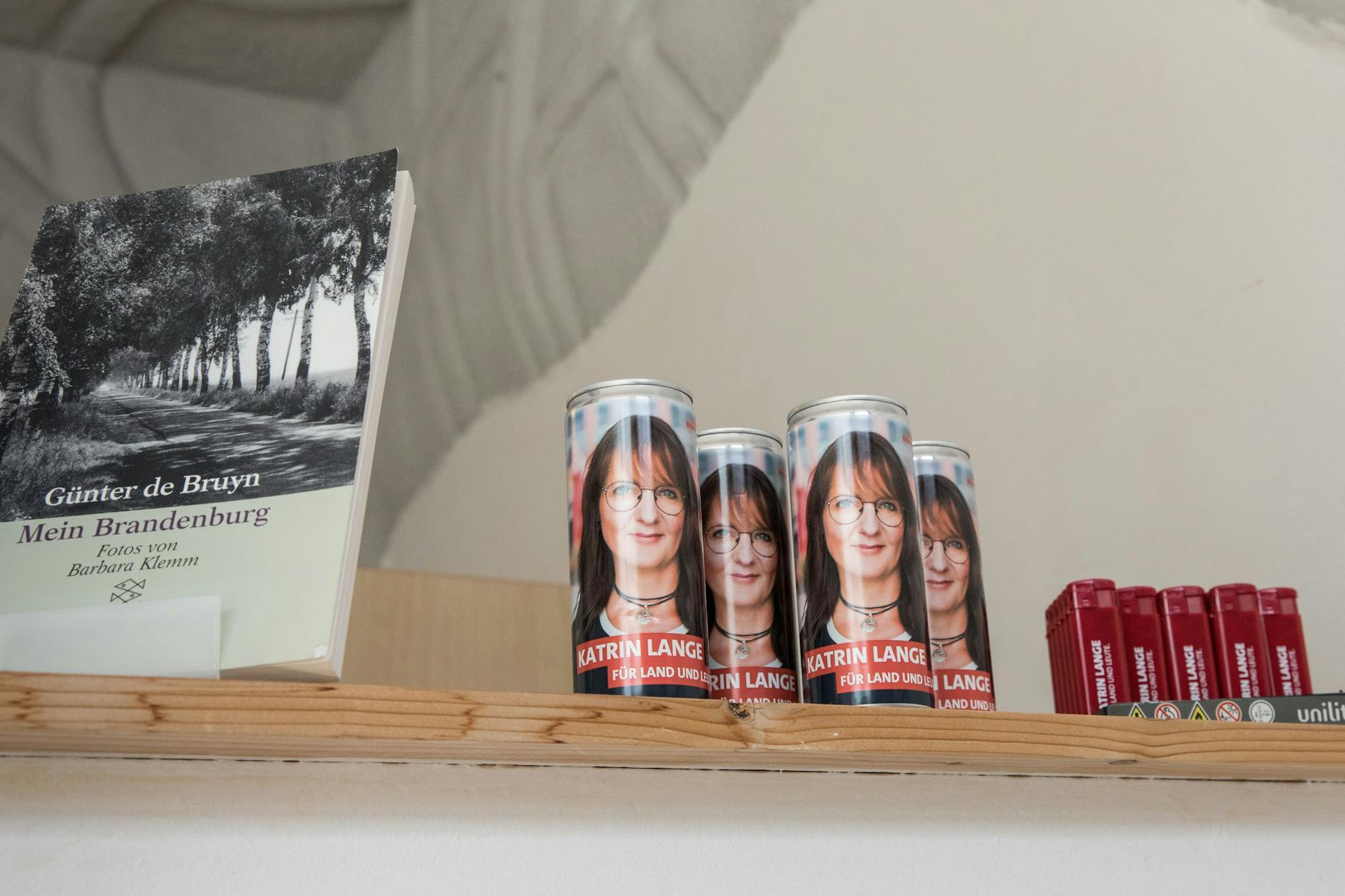
Your opponents within the party come primarily from Olaf Scholz's Potsdam branch. How do you explain this?
Olaf Scholz has nothing to do with this. And it's not just Potsdam. But in Potsdam, the SPD is a modern, urban, more left-wing party than in rural areas, with a stronger East-West mix, a large number of public service or government-related sectors, and many students. That's not a problem either. The problem is that the SPD in Brandenburg is increasingly unwilling to tolerate differences. In other words: diversity of opinion.
What kind of reaction do you get to your resignation ?
Almost nothing but support and encouragement. Many people are outraged, want to encourage me, hug me at the butcher's, speak to me at the Stern Center in Potsdam, send me flowers. Some say they've voted for the SPD for the last time after what they did to me. I counter that, because that can't be the solution either.
Do people really know exactly what was done to you?
It's the same as always: People don't know a lot of things exactly, of course, but they sense most things correctly. I speak like they do; I don't use speech bubbles. Here in rural areas, many people feel like they're being treated condescendingly anyway. And now the person who said such things is suddenly no longer here.
You would fit in quite well with Danish social democracy, wouldn't you?
That could be true. In Denmark, under social democratic leadership, they managed to bring down the right-wing by addressing the issue of migration sensibly, instead of denying the problems associated with it. At the same time, they are pursuing good social policy. In principle, this would also be possible in Germany.
With Lars Klingbeil at the helm? I wish the new federal government all the best. My party in particular. Lars Klingbeil too.
Sounds diplomatic.
Might be.
Katrin Lange and the SPD manifesto: “I wasn’t asked”There was recently a controversy over the SPD manifesto, in which politicians like Ralf Stegner called for peace negotiations in Ukraine instead of rearmament. You didn't sign it. Why not?
I wasn't asked. I probably wouldn't have signed it either. The way the manifesto has been handled is a disgrace: denunciation instead of discussion. This is standard practice in many necessary political debates in Germany today. Of course, I also support more political and diplomatic efforts by European states. Without such initiatives, the slaughter in Ukraine will continue. But in Germany, they have succeeded in completely poisoning the debate. Nothing more is happening.
Why did you actually join the SPD?
I'm originally from Brandenburg an der Havel and moved to Prignitz with my then-partner in the 1990s. The region certainly had potential for good economic development; there was the Meyenburg furniture factory, the Pritzwalk gear factory, cellulose processing in Falkenhagen, and more. But the mood was somber; people seemed depressed, practically weighed down.
The post-reunification blues.
Yes. Fewer children were born, people moved away, and back then, they even received money for it so they wouldn't sit around unemployed, but would go somewhere else. But at some point, that changed. And we said: You can't all leave, you're needed here too! That was the deciding factor for me to get involved in the SPD, with people like Manfred Stolpe, Regine Hildebrandt, and Matthias Platzeck, and later Dietmar Woidke. The Brandenburg SPD has always been a special SPD—to this day.
Did you also consider leaving as a young woman?
No, strangely enough, never. I had completed vocational training at the time of reunification, graduating with a high school diploma; back then, it was called a construction worker for concrete and steel construction. I wanted to become a civil engineer or study architecture later. But then came the post-reunification period and the economic collapse. Both my parents became unemployed, and the prospects were uncertain. I then trained as a government assistant in the Brandenburg Ministry of the Interior. That was my entry point into an administrative career. Something secure, that was the idea.
And it was in that very ministry that you became minister 30 years later. Your dream job, Woidke said when you resigned.
I was looking forward to the new position, even though I knew it would be a difficult task. Well, it wasn't meant to be.
Have you ever regretted your resignation ?
It was the right decision. I'm someone who can make decisions and also endure the consequences. And I didn't want to subject myself to the smear campaign against me any longer. At some point, it's over.
Are you now in favor of abolishing the Federal Office for the Protection of the Constitution?
No. But its activities must be monitored critically. And we need more effective parliamentary oversight at the federal and state levels.
Have you spoken to your successor, René Wilke, who was mayor of Frankfurt (Oder)?
Yes. We've known and respected each other for years, we've always had a good relationship, and of course, we've talked about this and that. With his unique political background, he's also someone who sometimes stands out from the crowd, just like me. I truly wish him all the best in his new position.
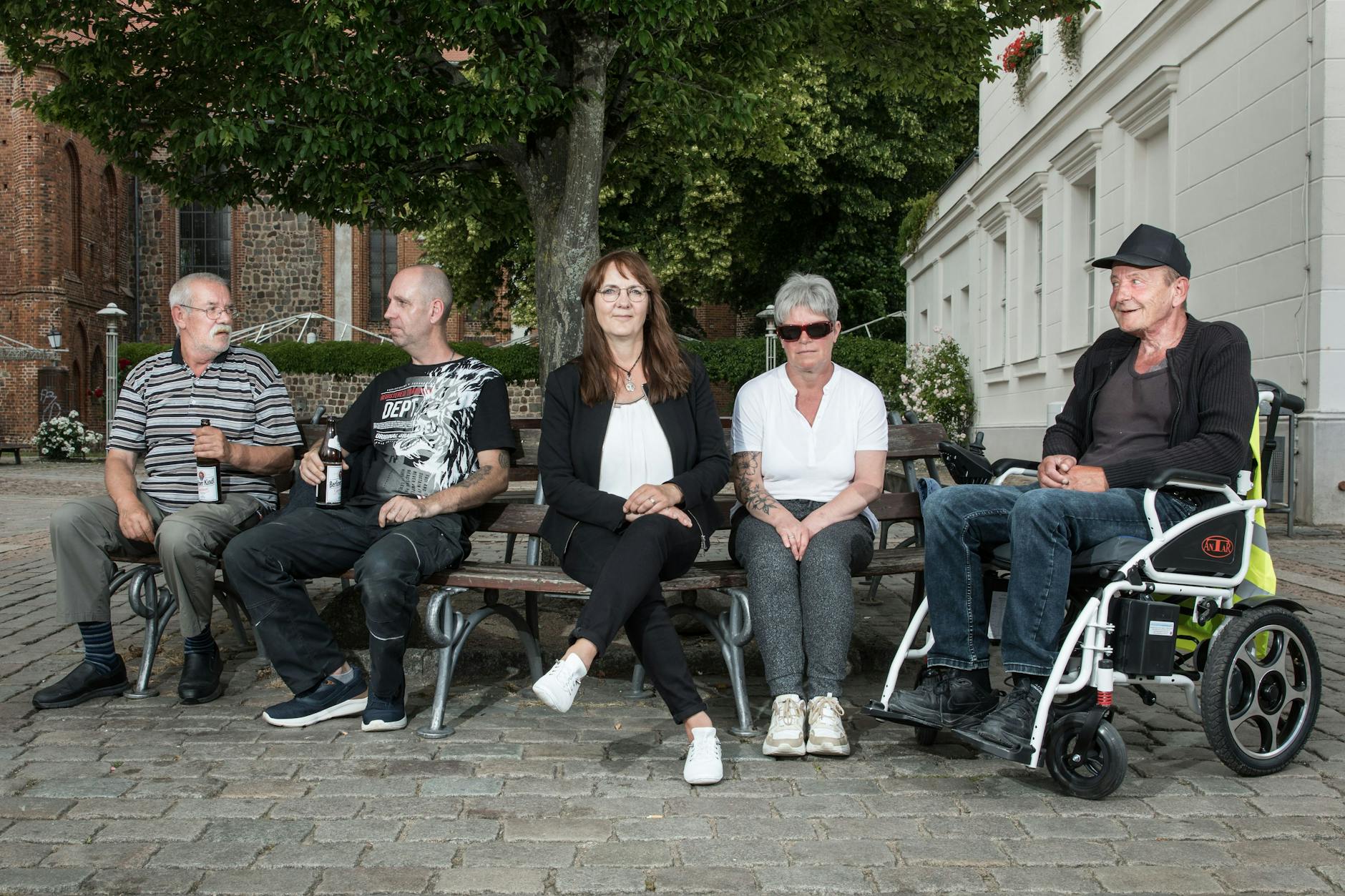
How does it feel for you to suddenly have so much time?
Very unusual. I worked around 80 hours a week for a very long time. You have to work that out. I still get up at five in the morning and do my exercise first. Everywhere I go, people say to me: Oh, you're here again? My son recently asked me: When are you going back to work properly?
Will you attend the SPD state party conference this Saturday? You're no longer running as deputy chairwoman.
No. I don't need to drink the same cocoa I've been dragged through. I'm done with certain people in the SPD Brandenburg.
And what’s next for you?
I'll take some time this summer to reflect. I haven't had enough of that in recent years. And I'll earn my living as a state parliament member. There's no need to worry about me.
Berliner-zeitung




